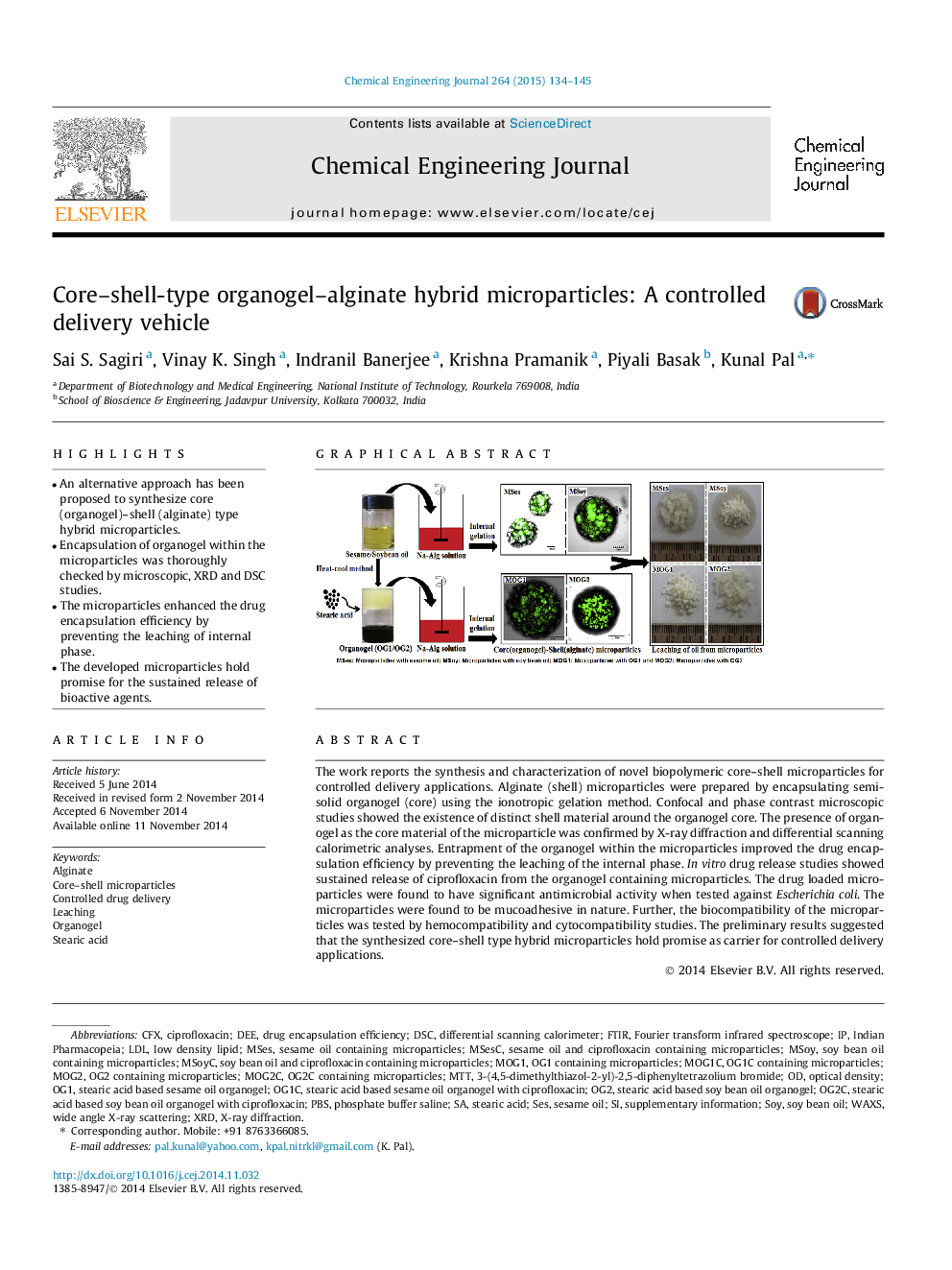| Article ID | Journal | Published Year | Pages | File Type |
|---|---|---|---|---|
| 146914 | Chemical Engineering Journal | 2015 | 12 Pages |
•An alternative approach has been proposed to synthesize core (organogel)–shell (alginate) type hybrid microparticles.•Encapsulation of organogel within the microparticles was thoroughly checked by microscopic, XRD and DSC studies.•The microparticles enhanced the drug encapsulation efficiency by preventing the leaching of internal phase.•The developed microparticles hold promise for the sustained release of bioactive agents.
The work reports the synthesis and characterization of novel biopolymeric core–shell microparticles for controlled delivery applications. Alginate (shell) microparticles were prepared by encapsulating semi-solid organogel (core) using the ionotropic gelation method. Confocal and phase contrast microscopic studies showed the existence of distinct shell material around the organogel core. The presence of organogel as the core material of the microparticle was confirmed by X-ray diffraction and differential scanning calorimetric analyses. Entrapment of the organogel within the microparticles improved the drug encapsulation efficiency by preventing the leaching of the internal phase. In vitro drug release studies showed sustained release of ciprofloxacin from the organogel containing microparticles. The drug loaded microparticles were found to have significant antimicrobial activity when tested against Escherichia coli. The microparticles were found to be mucoadhesive in nature. Further, the biocompatibility of the microparticles was tested by hemocompatibility and cytocompatibility studies. The preliminary results suggested that the synthesized core–shell type hybrid microparticles hold promise as carrier for controlled delivery applications.
Graphical abstractFigure optionsDownload full-size imageDownload as PowerPoint slide
